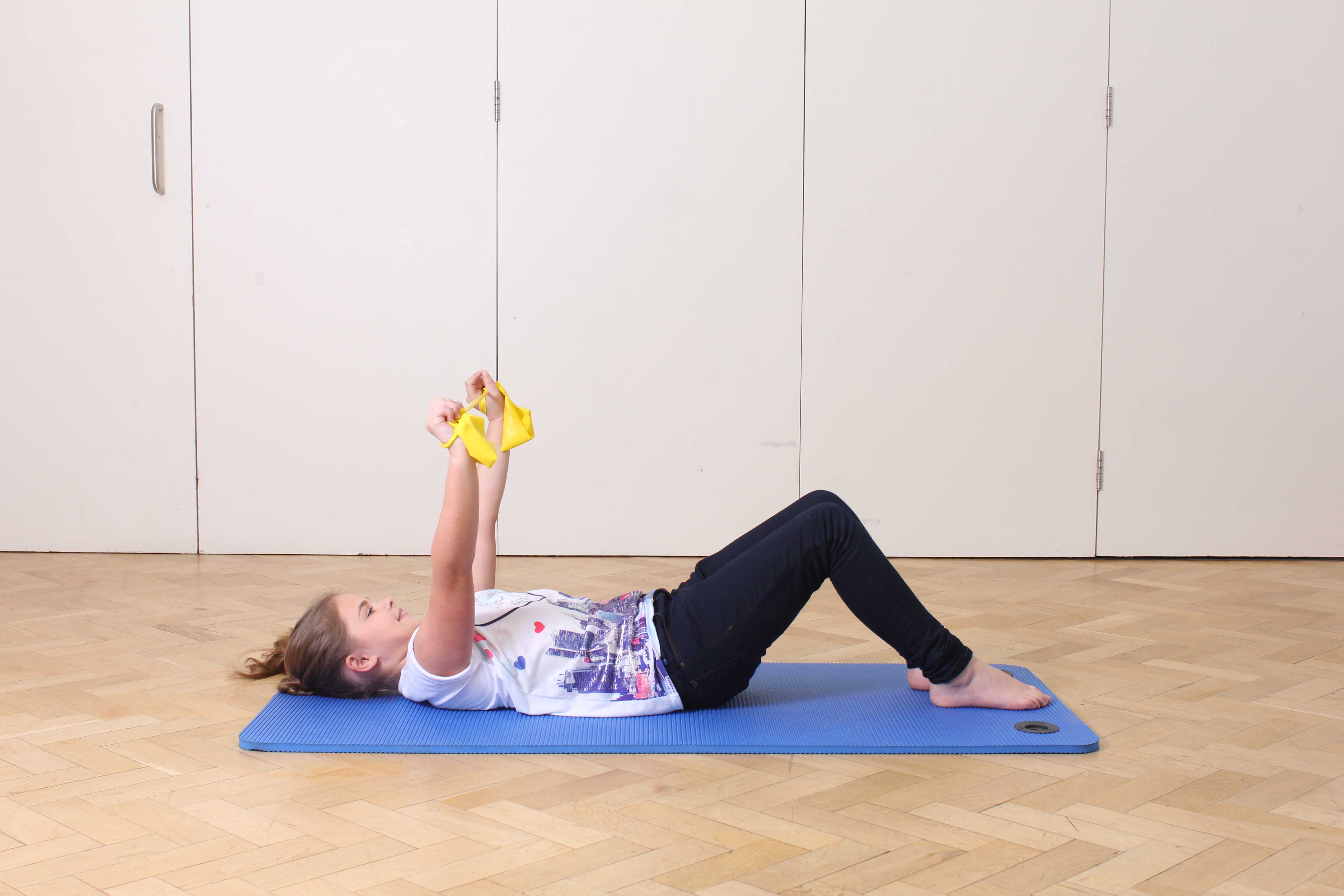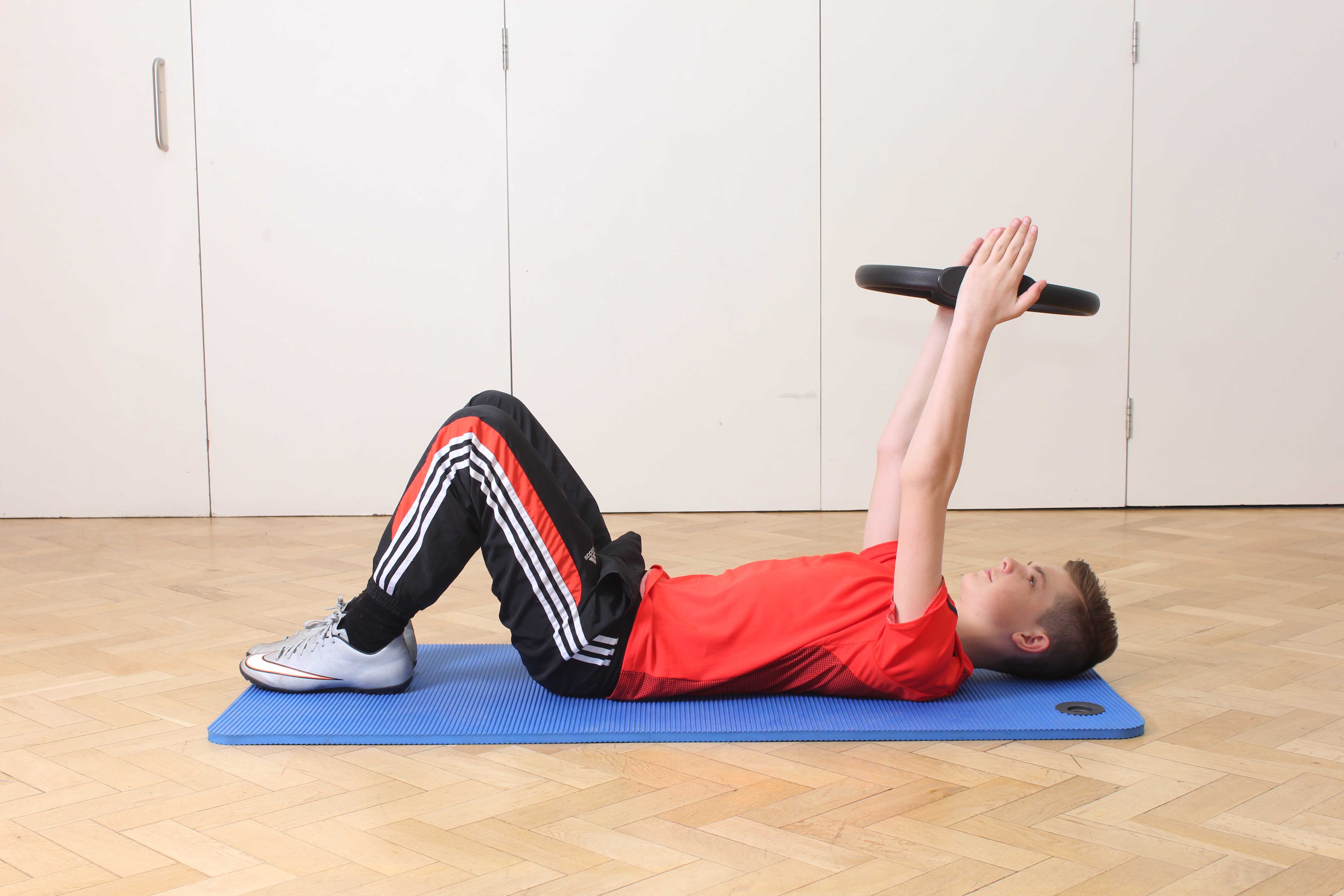What is spina bifida?
Spina bifida is a birth defect in which the spine and spinal canal do not close properly before birth. The severity of the spina bifida can vary depending on the type which may include:
- Spina bifida occulta: the most common and least serious form that usually does not require treatment. In this type there is only a tiny gap between the vertebrae.
- Spina bifida meningocele: the rarest type where the bones of the vertebrae develop normally, however the protective membranes of the spinal cord are pushed out. This can be removed surgically and no further treatment is usually required.
- Myelomeningocele: this is the most serious form, where the spinal column remains open causing the membranes and spinal cord to push out creating a sac that may or may not be covered by skin. Physiotherapy for this type of spina bifida is important to progress development and maximise potential with functional activities.
 Above: Upper limb mobility and co-ordination exercises
Above: Upper limb mobility and co-ordination exercisesWhat causes spina bifida?
The exact cause of spina bifida is unknown, however it is thought the condition is caused by a combination of environmental and genetic factors. Risk factors for spina bifida include:
- Insufficient intake of folic acid during pregnancy
- Previous children with spina bifida
- Medication such as valproic acid and carbamazepine used to treat epilepsy and some mood disorders, such as bipolar disorder and schizophrenia.
- Mother with diabetes
- Mothers who are obese
What are the symptoms of spina bifida?
The effects of spina bifida will vary according to the type, location and amount of nerve damage in the spinal cord. In myelomeningocele there may be:
- Partial or complete paralysis of the parts of the body below the spinal level affected, which impacts on development of gross motor skills such as sitting, standing and walking.
- Altered sensation
- Altered bladder and bowel control
- Hydrocephalus (excessive fluid in the brain)
- Secondary effects of altered muscle control impact on musculoskeletal system (can lead to dislocated joints, scoliosis, etc.)
Diagnosis of spina bifida
Diagnosis of spina bifida is usually confirmed during routine blood tests carried out during antenatal screening.
 Above: Upper limb strengthening and mobility exercises
Above: Upper limb strengthening and mobility exercisesPhysiotherapy for spina bifida
Our paediatric physiotherapists at Physio.co.uk understand that spina bifida can have a significant impact on your toddlers everyday function.
Physiotherapy should commence as soon as possible in order to maximise your toddlers potential and to prevent any secondary complications as they get older.
At Physio.co.uk, physiotherapy treatment will vary according to the severity of the condition and your child's stage of development and may include:
- Activities to maximise independence with functional activities such as sitting, crawling and walking
- Exercises to maintain or improve muscle strength
- Stretching tight muscles to prevent development of contractures
- Positioning and postural advice to increase comfort and maintain tissue length
- Provision of appropriate orthotics
- Exercises to improve balance and coordination and to prevent risk of falls
- Hydrotherapy to maximise strength and mobility
Physio.co.uk can provide treatment of children with spina bifida across Greater Manchester and Cheshire. We can provide assessment and treatment at our clinic, a child’s school or at your home for your convenience.
For more information on physiotherapy for spina bifida, or to book an appointment please call 0161 883 007, or book online today!

 0330 088 7800
0330 088 7800





































